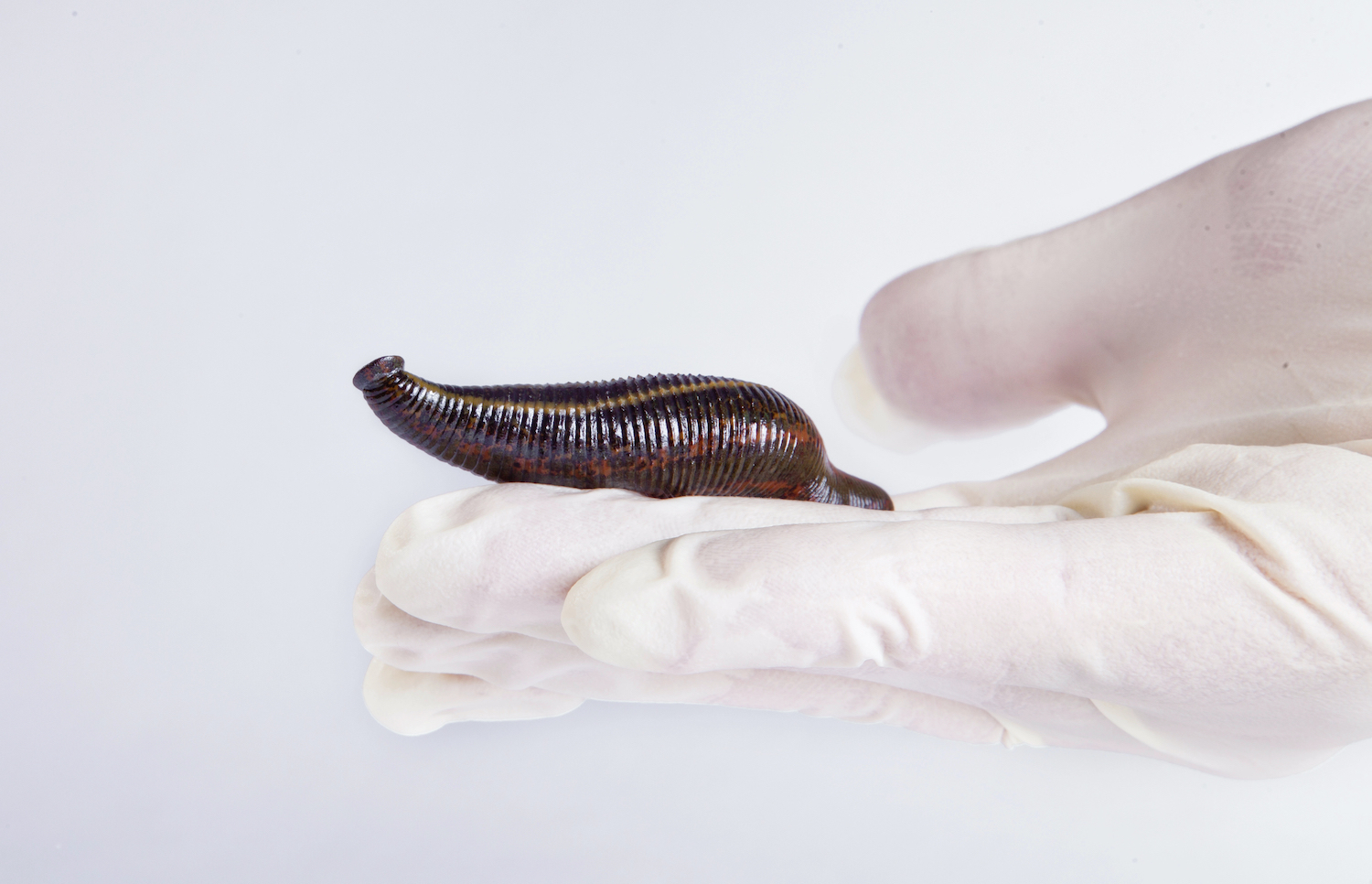Rheumatic diseases are a group of inflammatory conditions that attack the musculoskeletal system, leading to damage. If not diagnosed and treated in time, they can lead to progressive disability. Although rheumatic diseases cannot be cured entirely, their troublesome symptoms can be alleviated, and the further progression of the disease can be halted. Leech therapy supports pharmacotherapy and other conventional treatment methods. How can leeches help with rheumatism? We answer!
What are rheumatic diseases?
Rheumatic diseases are a group of autoimmune diseases. The immune system of those affected operates abnormally, attacking its tissues and leading to chronic inflammation. About 200 diseases attack the musculoskeletal system, mainly joints, collectively referred to as rheumatism.
Each rheumatic disease is characterized by the presence of chronic and recurring rheumatic pain and mobility disorders in various joints, though the course and accompanying symptoms can be completely different. Rheumatism can affect anyone, regardless of age.
What are the first symptoms of rheumatism?
Commonly, symptoms such as joint pain and swelling, stiffness, and limited mobility appear regardless of the type of disease. For example, in the commonly occurring rheumatoid arthritis (RA), there is pain and swelling in the small joints of the hands and feet, while pain from the so-called large joints, such as the shoulder or elbow, is less common. Pain usually affects the same joints on both sides of the body. A characteristic feature of RA is also morning stiffness in the joints lasting at least one hour after waking up.
What causes rheumatism?
The exact cause of rheumatism is unknown. It is speculated that rheumatic diseases may have a genetic basis, meaning they can be inherited. Various external and environmental factors can also lead to their development. Rheumatism may be influenced by viral and bacterial infections, certain medications, an excess of salt in the diet, smoking, as well as overweight and physical injuries.
What hurts with rheumatism?
The main symptom of rheumatism is joint pain. It affects not only the joint but also its surroundings. It can be very severe, stabbing and radiating. Often, additional symptoms include redness, joint swelling, and excessive skin warmth.
Treatment of rheumatic diseases
Degenerative changes caused by the ongoing disease are irreversible, but it’s possible to alleviate the annoying symptoms and slow down the progression of the disease. How to treat rheumatism? One method used in rheumatism is pharmacotherapy. Non-steroidal anti-inflammatory drugs (NSAIDs) are used, both orally and topically (ointments, gels, patches), as well as analgesics.
Rehabilitation and physiotherapy also play a significant role in treating rheumatic diseases. Additionally, patients must try to limit factors that can exacerbate the disease, such as smoking. In advanced cases, surgical procedures are performed.
Which vitamins for aching joints?
With rheumatism, it’s important to ensure an adequate intake of vitamins and minerals that affect the body’s proper functioning. Vitamin C, which participates in collagen production, a protein component of joints, is especially supportive of joint function. Vitamin D is also crucial, as it can inhibit inflammation in autoimmune diseases, as is vitamin K, which protects joints from degeneration.
Leeches for rheumatic diseases
Leech therapy, which involves applying leeches to the patient’s body, is recommended for rheumatism symptoms. Upon attaching to the skin, these unassuming creatures release a series of compounds called hirudin into the bloodstream, having a therapeutic effect on the body.
The effects of the therapy can vary depending on the cause and type of the disease. Good results are primarily observed when leeches are used in the initial stage of the condition. Unfortunately, the prognosis is worse for chronic joint inflammations. Therefore, it is crucial to start treatment as soon as possible.

